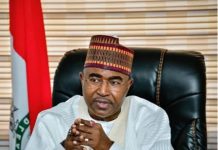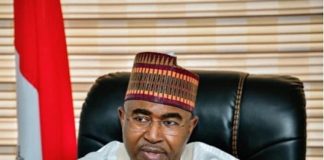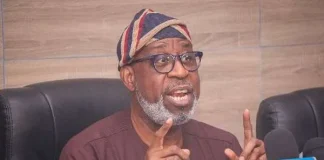🌿 Ruzu Non-Alcoholic Herbal Bitters
Ruzu Non-Alcoholic Herbal Bitters is a natural health supplement specially formulated to:
- ✅ Promote general wellness
- ✅ Detoxify the body
- ✅ Support the treatment of various ailments
Made from a powerful blend of 100% organic and medicinal herbs, Ruzu is completely alcohol-free, making it ideal for:
- 👪 All age groups
- 🌱 Health-conscious individuals
- 🌿 Anyone seeking non-alcoholic herbal remedies
Whether you're looking to boost your vitality, cleanse your system, or support healing the natural way, Ruzu Bitters offers a trusted herbal solution.
The Federal Executive Council (FEC) after a long meeting presided over by President Bola Tinubu on Tuesday rolled out 21 major policy initiatives.
Tinubu’s Special Adviser on Media and Publicity, Bayo Onanuga, in a post on his X handle, outlined the initiatives as a 48-hour visa policy, cancelling of airport toll payment exemption for very important persons and ban on sand dredging 10 kilometres from all federal bridges throughout the country among others.
The FEC meeting, which started on Monday and was concluded on Tuesday has been described by experts as unprecedented in the history of the council.
After the deliberations, the council approved several policies and projects that would enhance the economy, facilitate investments and promote the ease of doing business in the country.
Speaking to State House correspondents on Tuesday after the FEC meeting at Aso Rock Villa, Abuja, the Minister of Information and National Orientation, Mohammed Idris, said the Federal Government was reviewing its visa regime to help persons who wish to invest in Nigeria to obtain a visa within 48 hours.
Idris noted that the visa policy was one of the several resolutions of FEC, adding that it was aimed at encouraging investors and tourists.
Idris said: “Now, the Federal Executive Council has noted that our visa processes are becoming cumbersome and this is not encouraging investors to come in easily because, as the President has indicated, the ease of doing business is also tied to the ease of visa application.
“Therefore, the FEC has set up a committee to look at our visa processes to reduce the cumbersome nature of these visa processes, meaning that those investors or tourists who want to come into Nigeria will find it a lot easier to go into this country provided they follow all the laid down processes.
READ ALSO: Tinubu suspends implementation of 0.5% cybersecurity levy
“This includes the e-visa platform, which has already been discussed. The Federal Government is also mulling the idea of every visa application being processed within the next 48 hours.”
Nigeria’s e-visa process is part of a broader effort to streamline and modernise the country’s visa system, as outlined in the Nigeria Visa Policy (NVP) 2020.
The e-visa system allows visiting non-Nigerians to apply online. Applicants must complete an electronic application form, upload necessary documents, and pay the required fees.
Such e-visas available include the Short Visit Visa for business, which allows for a maximum stay of 90 days, and various investor visas that cater to different scales of investment from small to ultra-large enterprises.
Meanwhile, Ripples Nigeria notes that the system has been frustrated by inefficiencies, making the process cumbersome due to several factors. Applicants often face difficulties fulfilling documentation requirements and dealing with occasional technical hitches on the application portal.
If you like what we do, and are ready to uphold solutions journalism, kindly donate to the Ripples Nigeria cause.















